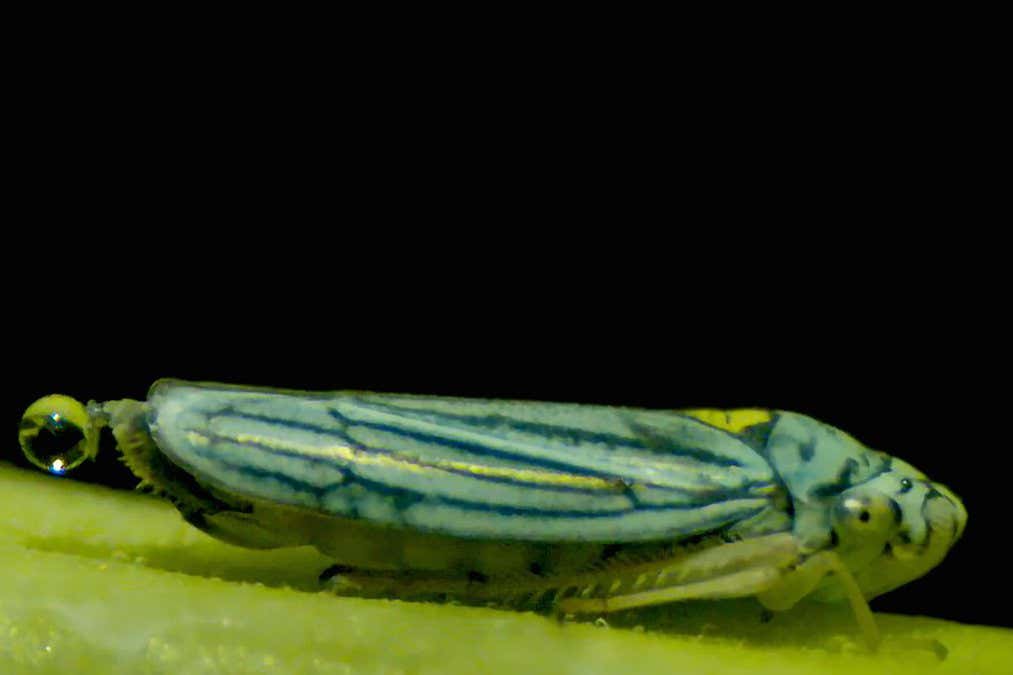Insect Urine: Tiny Creatures, Huge Waste Output
Introduction:
The world of insects is teeming with life, but it's also teeming with…waste. While often overlooked, insect urine plays a surprisingly significant role in various ecosystems, impacting nutrient cycling, soil health, and even human agriculture. This article delves into the fascinating world of insect excretion, exploring the surprising volume of waste produced by these tiny creatures and its broader environmental consequences.
The Unexpectedly Large Scale of Insect Urine Production:
It might seem counterintuitive, but insects, collectively, produce a staggering amount of urine. Consider this: billions of insects inhabit various environments, from lush rainforests to arid deserts. Each insect, regardless of size, contributes to the overall waste output. While individual urine production is minuscule, the cumulative effect is substantial, influencing nutrient cycles on a global scale.
Composition of Insect Urine:
Insect urine isn't simply water; it's a complex mixture of metabolic byproducts. Key components include:
- Nitrogenous Waste: This is often in the form of uric acid, a relatively insoluble compound that conserves water. This is crucial for insects living in dry environments.
- Salts: Insects excrete various salts depending on their diet and environment.
- Other Metabolites: These vary greatly depending on the insect species and its diet, influencing the overall impact of its urine on the surrounding environment.
Ecological Impacts of Insect Urine:
The impact of insect urine on ecosystems is multifaceted:
- Nutrient Cycling: Insect urine contributes significantly to nutrient cycling, especially nitrogen, which is essential for plant growth. The release of nitrogenous waste acts as a natural fertilizer, enriching the soil and supporting plant life. This is particularly important in nutrient-poor environments.
- Soil Health: The constant input of organic matter from insect waste, including urine, improves soil structure and promotes beneficial microbial activity. This contributes to healthier and more fertile soil.
- Food Web Dynamics: Insect urine, along with other waste products, becomes a food source for various decomposers, such as bacteria and fungi, playing a crucial role in the food web.
Agricultural Implications:
Understanding insect urine production has implications for agriculture. In some cases, insect urine can contribute to natural fertilization, reducing the need for synthetic fertilizers. However, in other instances, high concentrations of insect waste can lead to negative consequences, such as nutrient imbalances or the spread of pathogens. Further research is needed to fully understand the complexities of this relationship.
Future Research and Considerations:
While we are beginning to understand the impact of insect urine on ecosystems, much remains unknown. Further research is crucial to:
- Quantify insect urine production on a larger scale: Developing methods for accurately measuring the collective urine output of insect populations across various environments is essential.
- Analyze the specific composition of urine from different species: This will help to understand the diverse impacts of insect urine on different ecosystems.
- Explore the potential for using insect urine in sustainable agriculture: Investigating the potential benefits and drawbacks of harnessing insect waste in agricultural practices is crucial for developing sustainable farming methods.
Conclusion:
Insect urine, though often unseen and overlooked, plays a significant role in global ecosystems. Its impact on nutrient cycling, soil health, and agricultural practices highlights the importance of understanding these often overlooked aspects of insect biology. Further research will undoubtedly reveal more about the complex relationship between insects, their waste products, and the environment. This understanding will be crucial for developing sustainable and environmentally friendly practices.

